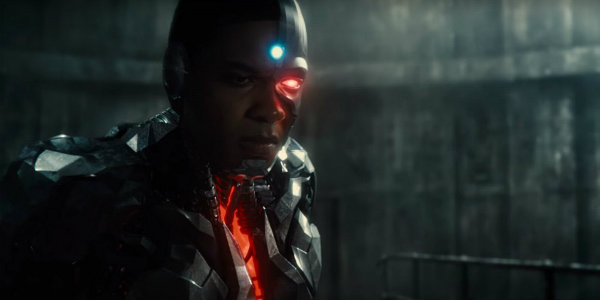A Major Theme That Cyborg Should Tackle, According To Comic Book Writer John Semper

Across the board, DC superheroes tend to have long and storied histories as cultural icons. However, one hero who is relatively new to the scene is Vic Stone a.k.a Cyborg, who has really only just begun to gain traction. The former Teen Titan turned founding member of the Justice League has experienced a surge in popularity over the last few years, but his overall mythos and persona remains incredibly malleable. The character will receive his own standalone movie in a few years, and there seems to be one very important stigma that comic book writer John Semper doesn't want people to associate with Cyborg.
During a recent Justice League panel at San Diego Comic-Con, Cyborg writer John Semper explained that he wishes to see Cyborg's stories downplay the concept of disability and its importance to the Cyborg lore. He said:
I think the biggest change for me in terms of the way that I want everyone to start perceiving Cyborg is that this is not a guy who is crippled in any way, this is a superhero and he's going to be doing wonderfully heroic things.
John Semper would go on to rationalize his opinion by explaining that we shouldn't consider Cyborg disabled because we don't consider other superheroes disabled. We don't classify Superman as having a disability because he's susceptible to the effects of Kryptonite, we don't classify Batman as having a disability because he clearly has mental problems (his words, not mine) and we shouldn't consider Cyborg disabled because an accident turned him into the hero we know and love.
Following these remarks, a Comic-Con attendee took the floor during a Q&A session and asked Semper why he's unwilling to embrace the notion of disability as a term of empowerment. This question prompted him to explain that he grew up with a blind sister, and he doesn't like the idea of the word "disability" because it can diminish the weight of someone's accomplishments in the face of adversity. He also went on to explain that he very much respects the idea that "disability" could be used by many as a term of empowerment, but it's a semantic idea that he's personally not partial to.
Later during the Comic-Con panel, Semper went on to explain that he has no interest in seeing Cyborg get torn apart in his stories anymore. It's become incredibly commonplace for Cyborg to take severe bodily damage throughout the course of his comic book adventures because he can essentially be repaired at any point. Semper asserts that the use of this trope does a complete disservice to the character, and likened it to having Batman take a bullet in every single on of his stories.
This seems like a divisive issue because there's a multitude of valid ways to look at it. One could make the argument that Cyborg serves as a valuable role model for people with prosthetics, while others could just as easily look at him as being just as physically able a the other heroes that he stands shoulder to shoulder with. We will know for sure how DC frames this issue when Ray Fisher's Cyborg fully debuts on November 17, 2017 in Justice League.
CINEMABLEND NEWSLETTER
Your Daily Blend of Entertainment News
Originally from Connecticut, Conner grew up in San Diego and graduated from Chapman University in 2014. He now lives in Los Angeles working in and around the entertainment industry and can mostly be found binging horror movies and chugging coffee.











